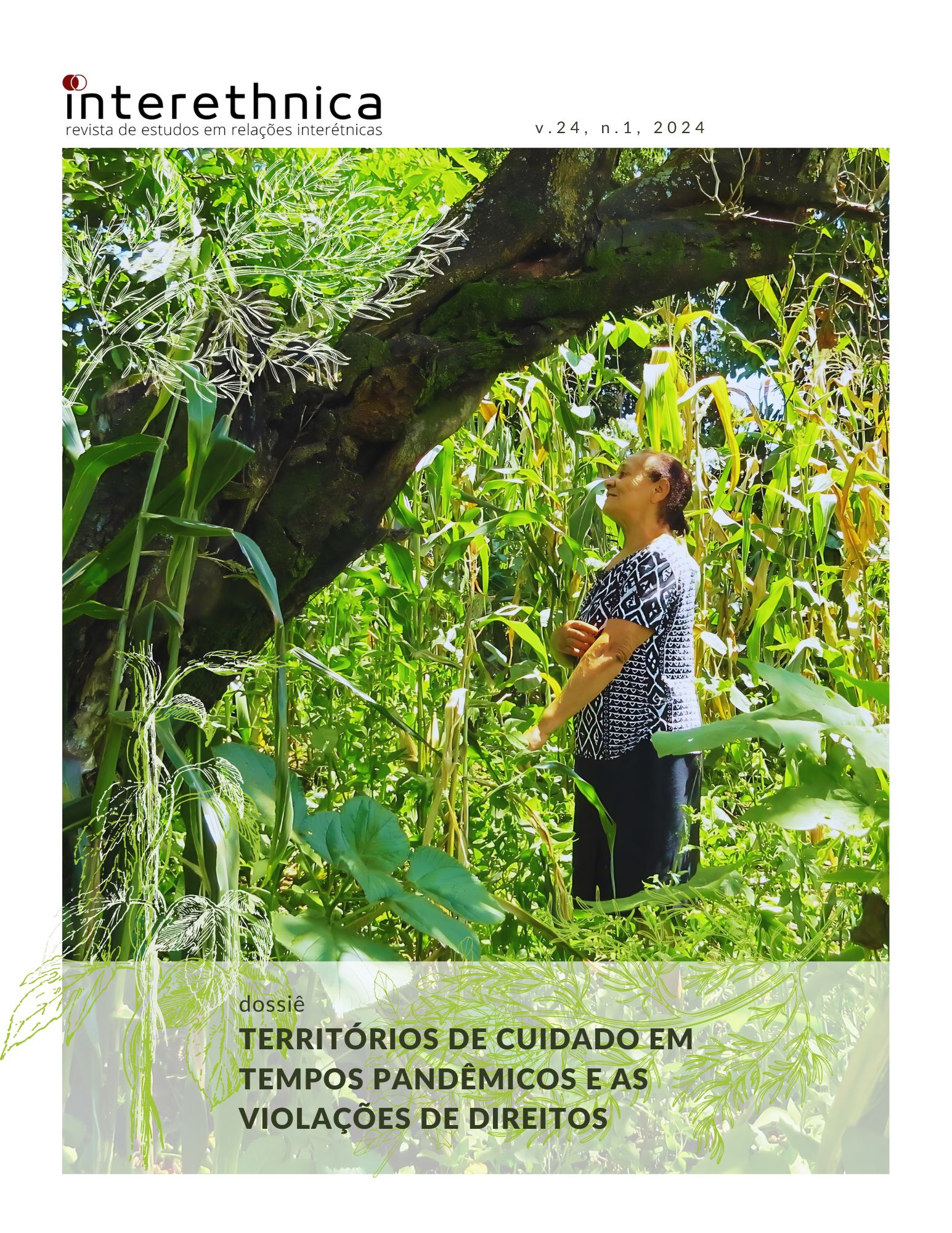Entre o céu e a terra: os harakwá dos Awá e a Estrada de Ferro da Vale
DOI:
https://doi.org/10.26512/interethnica.v24i1.54428Keywords:
Awá, karawara, conhecimento, Floresta Amazônica, cultura e naturezaAbstract
A antropologia, ao longo dos anos, tem pesquisado diferentes povos, sociedades, grupos e temas, tendo como um de seus campos de estudo os povos indígenas, cujas diferentes sociedades têm sido investigadas e analisadas principalmente a partir de categorias ocidentais, que possuem como um de seus pontos fundantes as dicotomias natureza e cultura, humanos e não humanos, o conhecimento dominante científico ocidental e o conhecimento indígena. As reflexões propostas aqui sugerem uma narrativa etnográfica sobre o povo Awá-Guajá a partir do que observei e aprendi com eles, enquanto um indígena antropólogo da etnia Apurinã. Chama a atenção a relação dos Awá com os karawara (demiurgo), que ocorre por meio da caçada na floresta. Nessa perspectiva, a relação cosmológica, real e contemporânea de alteridade e de interdependência entre os Awá e os karawara, entre o céu e a terra precisa continuar para que haja a sustentabilidade dos recursos naturais, o bem e a manutenção do planeta e dos seres vivos que o habitam. Sem floresta não haverá caça e sem caça não haverá relação entre as sociedades celestes e terrenas, visto que os karawara precisam da floresta para continuar no céu e os Awá precisam do céu para continuar na floresta.
Downloads
Published
Issue
Section
License
Copyright (c) 2024 Interethnic@ - Interethnic Relations Studies Journal

This work is licensed under a Creative Commons Attribution-NonCommercial 4.0 International License.
COPYRIGHT AND EXCLUSIVITY
At the time of submission, authors undertake not to send this manuscript to another journal during the reviewing process. Conversely, the Journal does not accept articles that are still under review in other journals. Neither will it accept two simultaneous reviews of the same author, understanding that this constitutes simultaneity.
Submission automatically implies full assignment of the copyright, including translation, if the article is approved for publication. Authors may reproduce their articles, provided that the original source (Interethnic Journal) is cited
GOOD SCIENTIFIC PRACTICES
TAll submitted articles will be submitted to plagiarism and "self-plagiarism" or republishing (publication as unpublished material of texts already published). Eventual cases of bad practice will be examined and decided by the editorial committee according to the guidelines of the National Council for Scientific and Technological Development (CNPQ).
The integrity of the content of the articles is the sole responsibility of the authors.



